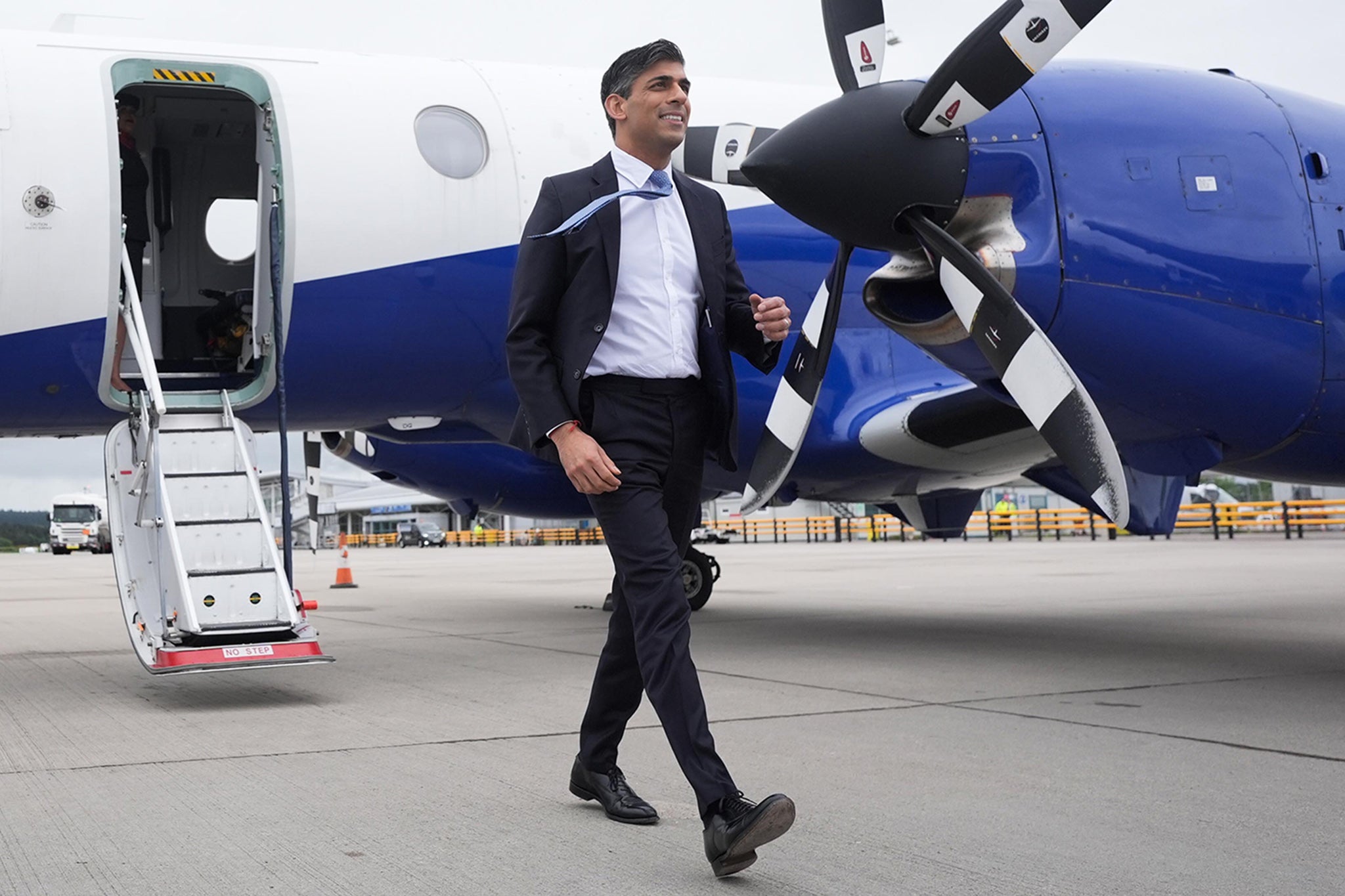Day one of the election campaign opened with Rishi Sunak admitting that no deportation flights will take off for Rwanda before polling day. This was a bad start for a prime minister who promised above all a return to competence when he took over after a period of extreme political turbulence.
Mr Sunak has not been in office long, although he has managed to survive 12 times longer than his immediate predecessor, but in that time he has had a mixed record of delivering the stability and brighter days that he promised.
Early on in his premiership he set out his “five key priorities” – to halve inflation, restore economic growth, reduce the national debt, cut NHS waiting lists and stop the boats. That he has failed on the last three of the five (and as for the second, growth was restored only after a shallow recession) is a rickety platform from which to launch an election campaign.
And to start that campaign by announcing more things that are not going to happen before election day further undermines Mr Sunak’s claim to be the problem solver, the technocrat, the deliverer of a better future.
The Independent disagrees with the Rwanda policy. It is of questionable morality, but our main objection to it is that it would not work: it cannot plausibly deter migrants from crossing the Channel in small boats.
Mr Sunak’s claim was that he would deliver the policy and that its opponents would be proved wrong. It would be one of the big differences between the Conservatives and Labour at this election, because Sir Keir Starmer has pledged to scrap it.
But without a single deportation flight to Kigali, the debate remains a theoretical one. Conservative supporters of the policy had hoped for at least one flight as “proof of concept” – showing that the Home Office had the ability, in practice, to remove migrants against their will to Rwanda.
Given that Mr Sunak has decided to hold an election five months earlier than he needed to, no doubt there are good reasons for bowing to the inevitable, which is that legal challenges mean that it is unlikely that the flights will get off the ground before 4 July. But it makes it look as if the prime minister called an early election partly because he feared that, if the deportation flights did start, they would be shown not to deter Channel crossings.
In many ways, Mr Sunak is well qualified for the office he holds. He is immensely capable, hard working and good at detail. He was impressive in dealing with the crisis of the pandemic as chancellor.
As prime minister, he and Jeremy Hunt stabilised the economy after Liz Truss and Kwasi Kwarteng blew it up – although he can hardly expect the voters to reward him for putting right the Conservative Party’s own mistakes. And he delivered the near impossible in renegotiating Boris Johnson’s botched Northern Ireland Brexit deal. But he has been let down by his clumsy politics, promising things that he had no realistic prospect of delivering, of which the emphatic absolutism of “stop the boats” was a prime example.
Now it turns out that there are more things that he is failing to deliver. His bill to ban smoking gradually by raising the smoking age every year appears to have been lost in the winding up of parliamentary business – despite his boast that “we will ensure that the next generation grows up smoke free” in his rain-soaked speech in Downing Street on Wednesday. That is a pledge that might, or might not, now be delivered by a future government, either in that form or a different one.
If Mr Sunak ceases to be prime minister on 5 July, his failure to ensure that any flights to Rwanda take off, despite the millions spent on the policy, will surely stand as one of the emptiest of his legacies.




Join our commenting forum
Join thought-provoking conversations, follow other Independent readers and see their replies
Comments